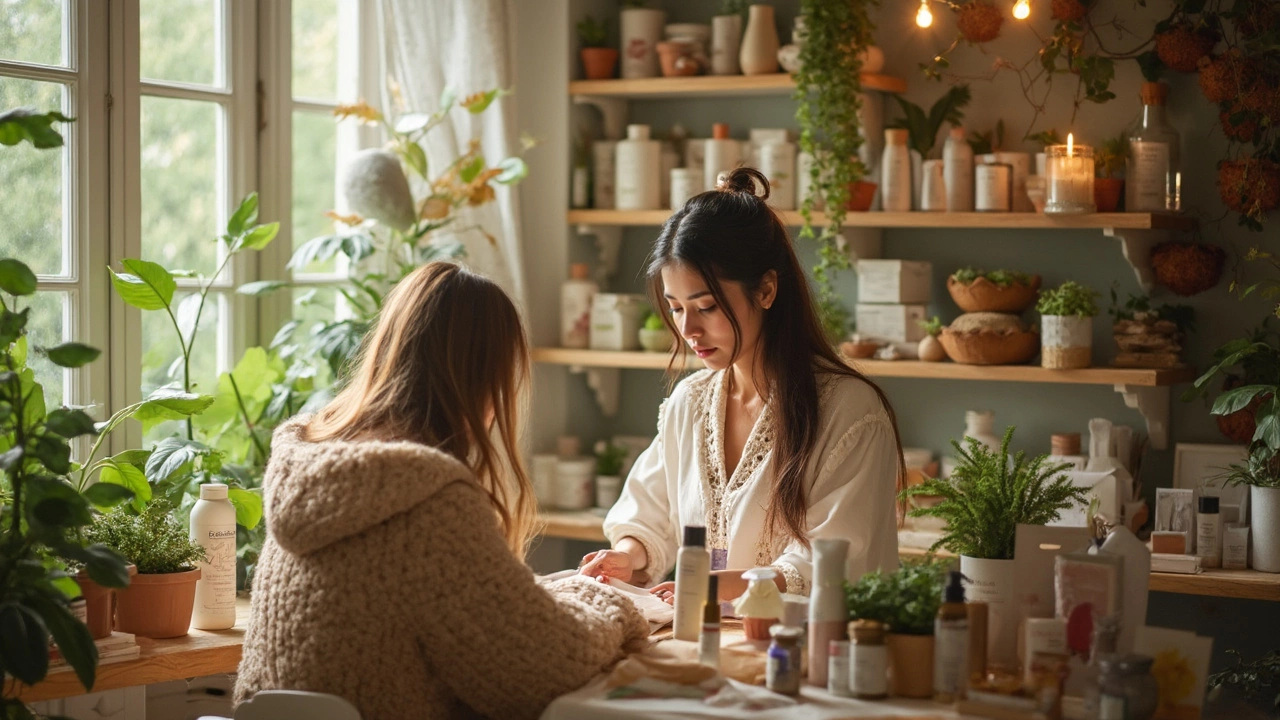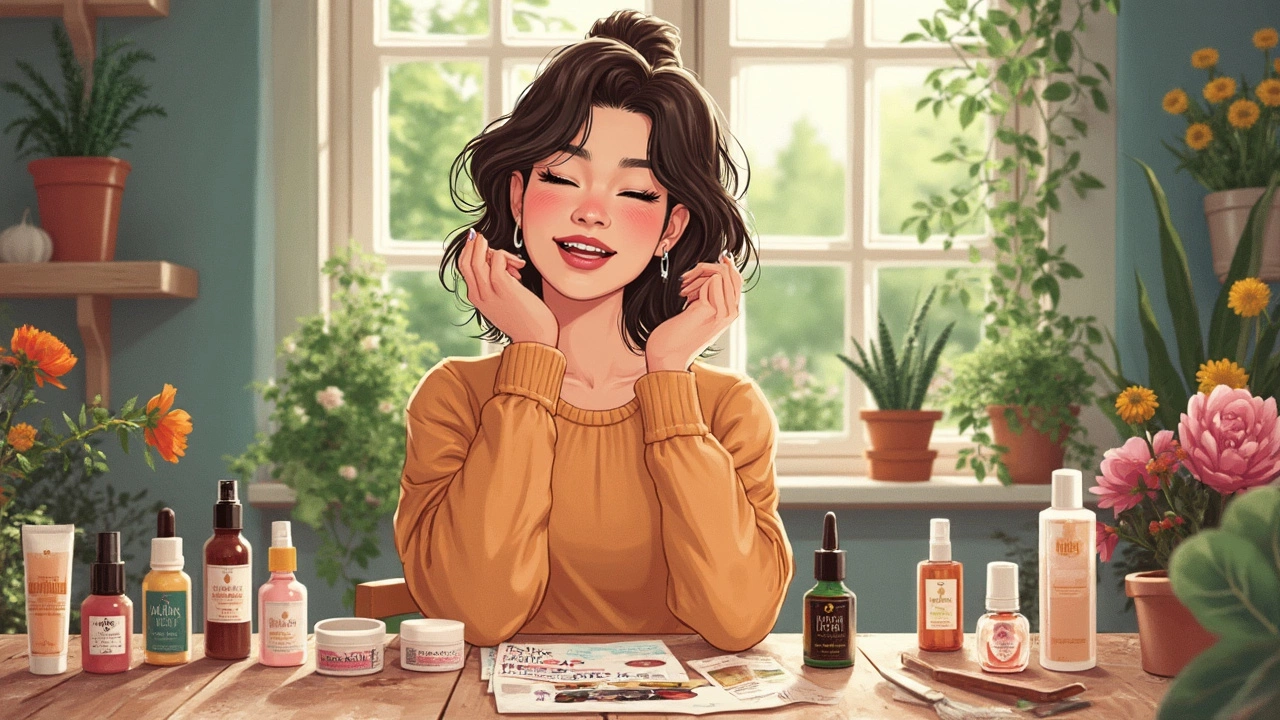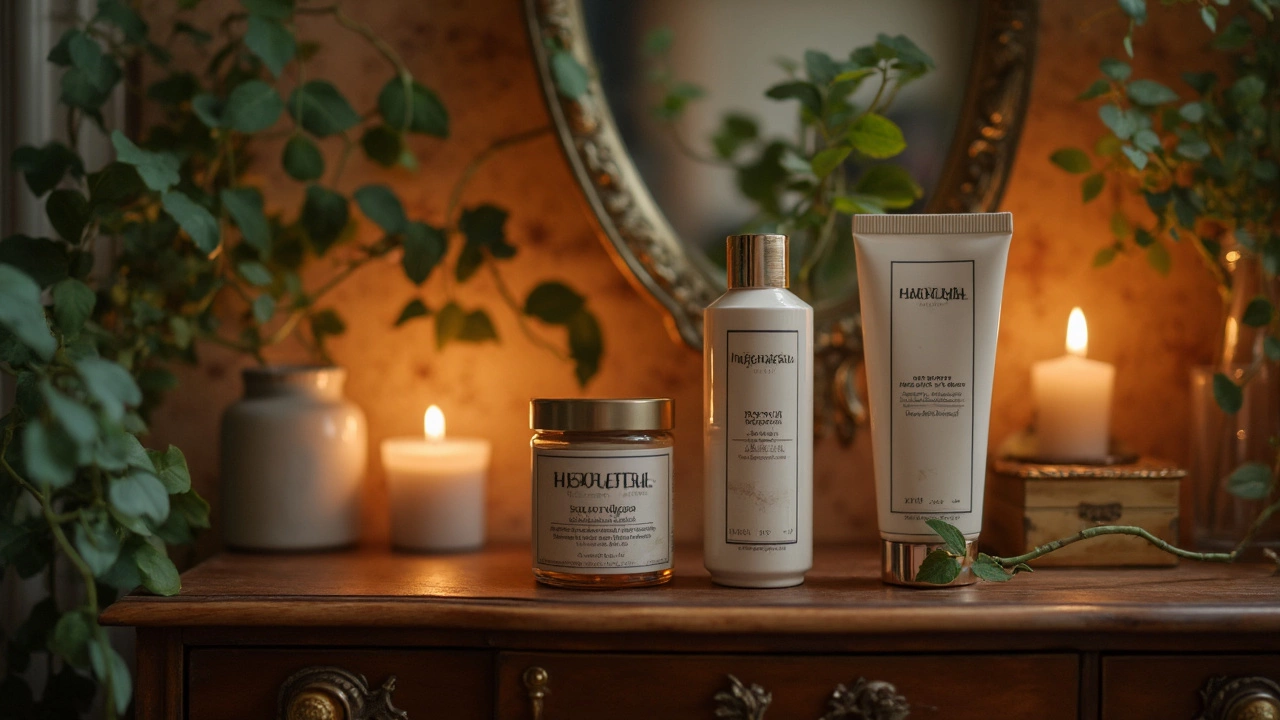
Ever stood in the beauty aisle, baffled by the endless options and wondered, "Which one of these is gonna be kindest to my skin?" I’ve been down that road too, not just for myself but thinking about the kind of world I want my daughter, Liora, to live in. Navigating the world of makeup today feels more like a chemistry class than a beauty one. So, let’s break it down: why going non-toxic isn’t just a fad, but a necessary choice for you and the planet.
Non-toxic makeup is more than just a marketing buzzword. It’s about ditching the harmful chemicals and embracing natural ingredients that our bodies and environment can actually handle. Think about it as moving away from the dodgy synthetic stuff like parabens and phthalates, which can be as bad for your health as they sound. Instead, we're talking about plant-based goodies like jojoba oil and shea butter.
The cool thing is, more brands are jumping on the clean beauty bandwagon, giving us plenty of options that don’t compromise on quality or style. From lipsticks that won’t make you cringe at the ingredient list to foundations that don’t just sit on your skin but play nice with it, there are choices out there that can redefine your beauty routine.
- Why Non-Toxic Matters
- Understanding Ingredients
- Top Non-Toxic Makeup Brands
- Tips for Choosing Safe Makeup
- The Impact on Skin and Environment
Why Non-Toxic Matters
Choosing non-toxic makeup isn’t about hopping on a new trend; it’s about making choices that affect our health and the planet in a big way. Most traditional cosmetics are filled with stuff you wouldn’t even want in your home, let alone on your skin. We’re talking about things that can mess with hormones, cause allergic reactions, and frankly, just aren’t necessary.
For example, parabens, which are often used as preservatives in cosmetics, mimic estrogen in the body and have been linked to an increased risk of certain cancers. Yikes! And let’s not even get started on phthalates which can sneak into your products under vague labels like “fragrance.” They’ve been associated with reproductive health issues.
Switching to organic skincare helps protect not only your skin but also reduces the toxic load on our environment. The beauty industry is notorious for its impact on nature – think about all the chemical runoffs and questionable sourcing of ingredients. By choosing cleaner options, you’re casting a vote for more sustainable practices.
Plus, using clean, eco-friendly cosmetics connects us back to our roots, to ingredients that are freshly picked, minimally processed, and are often better for our skin. Think about soothing aloe vera, calming chamomile instead of chemical concoctions. Our skin actually appreciates these natural touches and tends to respond better without all those unnecessary irritants.
| Ingredient | Potential Harm |
|---|---|
| Parabens | Hormonal disruptions |
| Phthalates | Reproductive issues |
| Formaldehyde | Cancer risk |
Backing these choices with real numbers, since 2020, there’s been a noticeable rise in consumer demand for non-toxic products, hitting a 10% growth annually in the organic skincare sector. It’s not just a personal choice anymore; it’s a movement towards a more responsible future for everyone.
Understanding Ingredients
Walking through the maze of makeup labels can be daunting, right? But once you get the hang of understanding ingredients, choosing non-toxic makeup becomes way easier. So, let's dig into what's important here.
First up, flip that product over and read the ingredient list. Sounds obvious, but how many of us actually do it? Look for the big baddies to avoid: parabens, phthalates, and synthetic fragrances. These are often linked to health issues you don't want to deal with.
Now, on the flip side, there are star players you want in your corner. Keep your eyes peeled for natural boosters like jojoba oil and shea butter, which are much kinder to your skin. They provide hydration without the drama of irritating additives.
Here's a quick tip: less is more. Products with a long list of unpronounceable ingredients can be a red flag. Clean beauty favorites usually shine with simplicity. They might use five or six natural ingredients instead of a long chemical cocktail.
Unsure about something? There are apps you can use to scan products, giving you a rundown of what each ingredient does and any potential hazards. It’s like having a personal skincare consultant in your pocket!
Here's a sneak peek of what you're up against:
| Ingredient | Why It's Used | Potential Risk |
|---|---|---|
| Parabens | Preservative | Hormone disruption |
| Phthalates | Plasticizer | Endocrine disruption |
| Synthetic Fragrance | Scent | Allergies |
Getting familiar with these ingredients is a step towards making empowered choices. It's about taking charge of what you're putting on your skin because let's face it, your skin deserves the best!

Top Non-Toxic Makeup Brands
So, you're looking to switch up your beauty routine and want to keep it real with some non-toxic makeup. Trust me, you're not alone in this! There are plenty of brands that are seriously stepping up their game, focusing on organic skincare and clean beauty. Let’s look at a few fan favorites that have gained a loyal following for all the right reasons.
Beautycounter is a powerhouse when it comes to non-toxic beauty. They've banned over 1,800 questionable or harmful ingredients from their products. Plus, the brand is all about transparency and educating consumers, which is pretty refreshing in the beauty industry.
Another name you can't miss is Ilia Beauty. They mix safety and performance like pros. Known for their multi-purposes, Ilia’s products not only highlight your features but also protect your skin with nourishing elements like aloe leaf juice and rosehip oil.
Tata Harper is like the Rolls Royce of organic beauty. Handcrafted in Vermont, their makeup is packed with natural ingredients and cutting-edge green technology. If you haven't tried their illuminating moisturizers, you might wanna give it a go.
For those who love their makeup bag to be a reflection of their ethical choices, Axiology is your brand. Their lipsticks are a guilt-free treat, thanks to their commitment to 100% vegan and cruelty-free products. Plus, their packaging is eco-friendly, made from recycled materials.
And if you're all about skincare that doubles as makeup, RMS Beauty delivers on that front. Founded by a makeup artist, the brand specializes in formulas that use food-grade, organic, and raw ingredients. Their signature "Living Luminizer" is a top-seller for a reason—it gives you that natural glow without the synthetic stuff.
It's not about perfection but rather making sure the products we use are safe for us and the earth. Exploring these brands could be the best decision for your clean beauty journey!
Tips for Choosing Safe Makeup
Alright, so you're ready to go clean with your beauty bag. Awesome choice! Now, let’s make sure you’re actually getting non-toxic makeup when you shop. It all starts with a bit of homework, but don’t worry, I've got you covered with some solid tips.
Firstly, always check the ingredient list. It's like checking the label on food at the grocery store. Skip anything with parabens, phthalates, and synthetic fragrances—it’s a mouthful, I know, but these are the usual culprits linked to health risks. Aim for products with clean, pronounceable ingredients instead.
Another golden rule: certification is your friend. Look for reputable seals like the USDA Organic or EU’s Ecolabel. These badges mean the brand’s practices and ingredients are vetted for eco-friendliness and safety.
- Research the brand: Does the company focus on eco-friendly cosmetics? Check their commitment and transparency about ingredient sourcing.
- Try samples first: Lots of brands offer sample sizes, or you can find trial kits online. Test how your skin reacts before investing in full-sized products.
- Mind the packaging: Eco-conscious packaging is a good sign that the brand cares about sustainability. Go for recyclable or biodegradable packs.
| Ingredient | Avoid/Use | Reason |
|---|---|---|
| Parabens | Avoid | Linked to hormone disruption |
| Sulfates | Avoid | Can cause skin irritation |
| Jojoba Oil | Use | Natural moisturizing agent |
| Shea Butter | Use | Nourishing and environmental-friendly |
These steps might take a bit of extra time, but your skin and the environment will thank you. Plus, once you get the hang of it, you’ll shop like a clean beauty pro! Happy hunting for that perfect clean beauty look!

The Impact on Skin and Environment
Have you ever thought about what your makeup is doing to your skin over time, or how it's affecting the environment? It’s a bit of a wake-up call when you realize that non-toxic makeup isn’t just beneficial for your health but also for our planet.
For starters, skin is our largest organ, and it absorbs much of what we put on it. Meaning those traditional products with questionable ingredients can do more harm than good. Things like parabens, which are often used as preservatives, have been linked to hormonal imbalances. So choosing organic skincare means giving your skin the gentleness it deserves, reducing risks of irritation and allergic reactions.
Now, on the environmental side, it’s not just the makeup that matters, but how it’s made. Conventional beauty products contribute to pollution, mainly through production processes and packaging. Those toxic chemicals can leach into waterways, causing damage to marine life and ecosystems. Not a pretty picture, right?
Here’s a reality check: beauty brands that focus on creating eco-friendly cosmetics are committed to reducing these impacts. They use sustainable practices like recyclable packaging and sourcing ingredients that don’t harm the earth in the process. Check this out for more perspective:
| Aspect | Toxic Makeup | Non-Toxic Makeup |
|---|---|---|
| Sustainability | Low | High |
| Skin Safety | Often irritative | Skin-friendly |
| Environmental Impact | Significant | Minimal |
Switching to clean beauty isn’t just a personal win—it's a step towards a healthier planet. It’s about making choices that benefit not just yourself, but your community and future generations. Plus, doesn’t it feel great to look good, knowing you’re doing good?